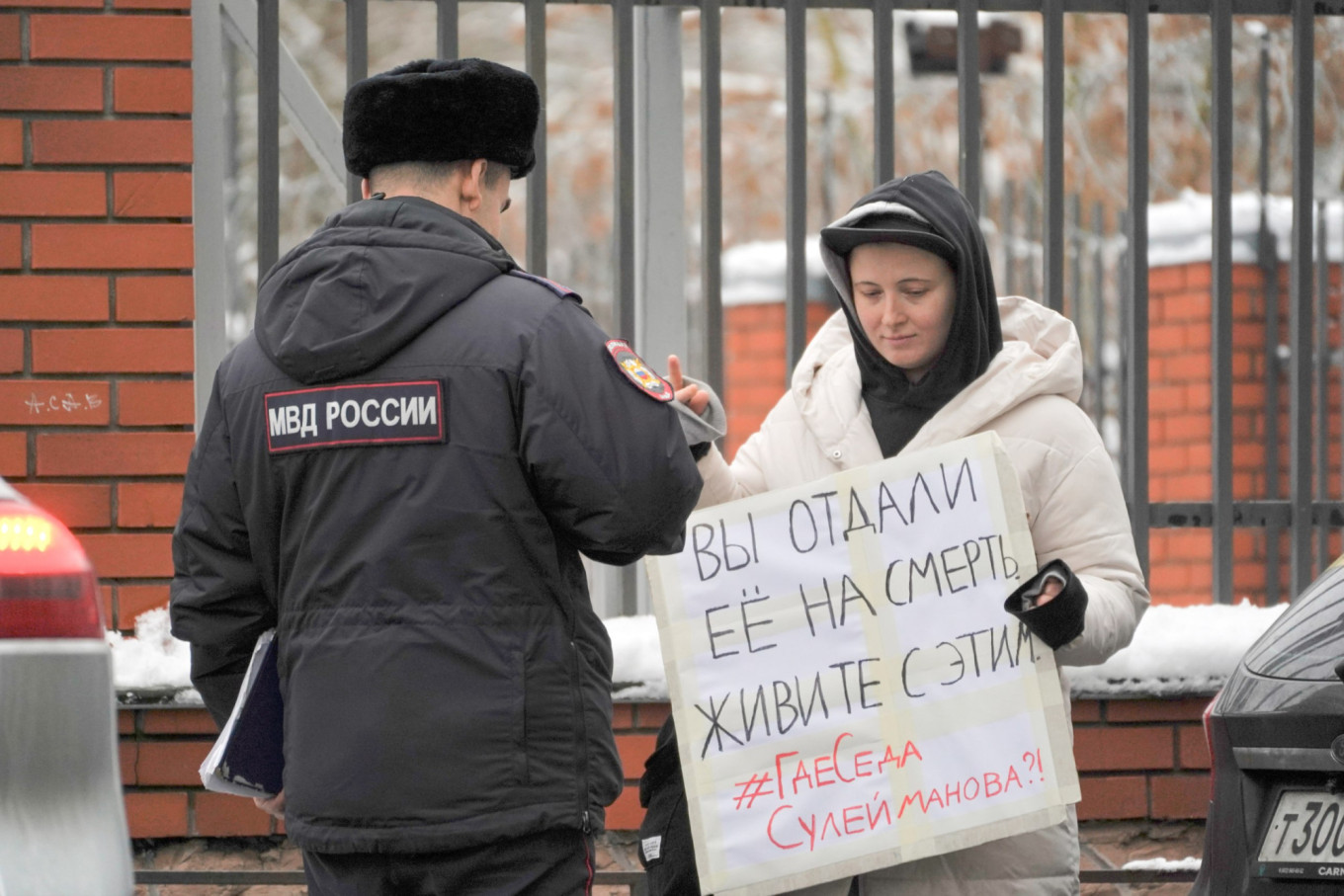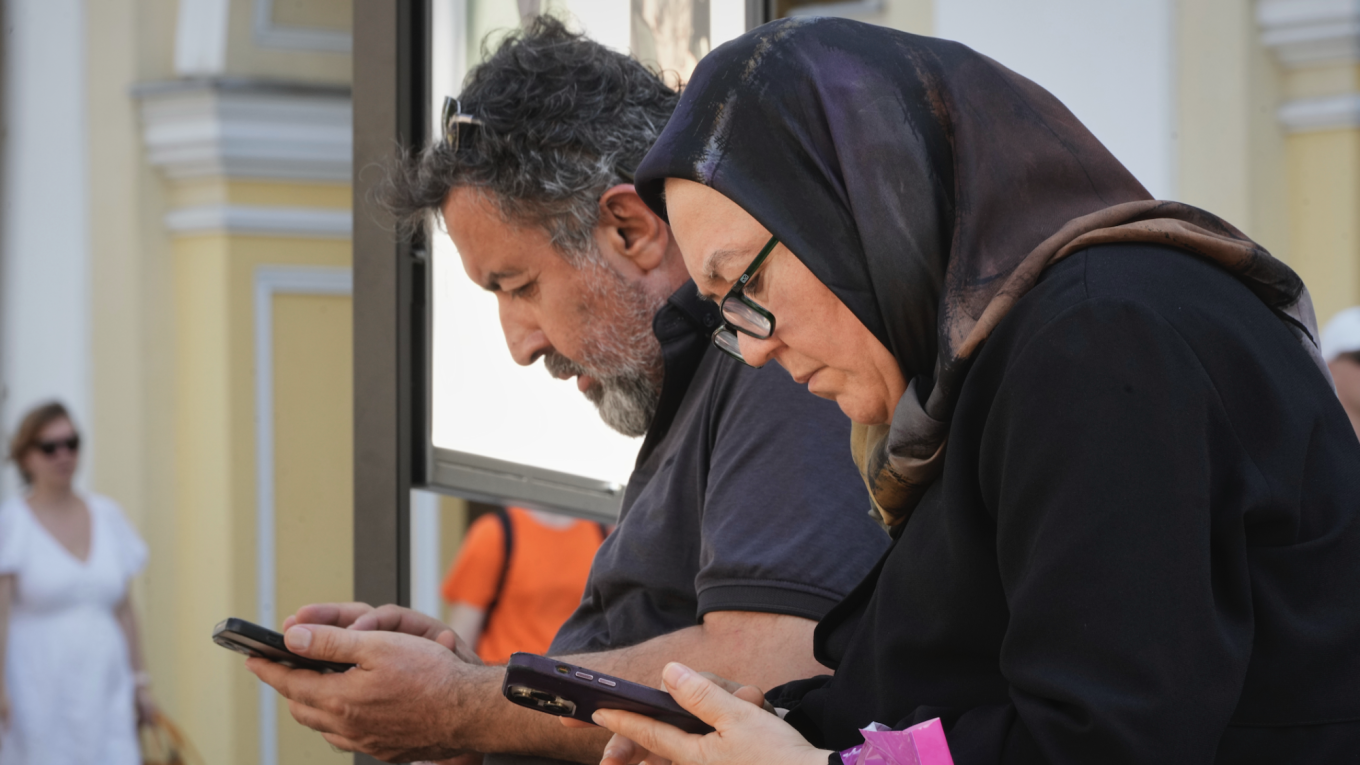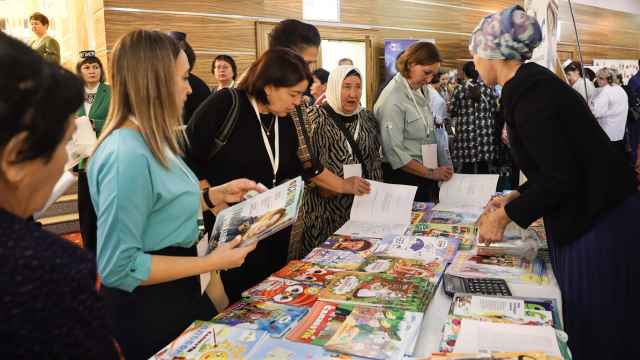Welcome to Regions Calling, your guide to developments beyond the Russian capital from The Moscow Times.
In this edition, we examine how frequent — and in some cases permanent — mobile internet outages and restrictions have transformed the lives of ordinary people in Russia’s regions.
But first, a look at the latest news:
The Headlines
Authorities in the Siberian republics of Khakassia and Sakha (Yakutia) have cut monetary support to soldiers fighting in Ukraine and their families due to budgetary constraints.
Russia’s regions provide one-time payments from their local budgets for signing a military contract, when a soldier receives an injury in combat and in the event of a serviceman’s death.
While Sakha authorities did not specify which payments will be aborted, Khakassia will no longer issue one-time payments of 1.1 million rubles ($14,000) to families of deceased soldiers, RFE/RL’s Siberian bureau Sibir.Realii reported.
The head of the republic of Buryatia called for the eradication of cormorants, a large waterbird, from Lake Baikal, citing overpopulation concerns.
"Different scientists have different positions. Some say [cormorants are] supposed to exist and don't cause any harm. Others say they do. My personal position is that they definitely do, and we must fight them….Not by regulating them, but by eliminating them," Alexei Tsydenov said.
Residents of at least two remote settlements have been raising alarm in recent weeks over continued food supply shortages that authorities blame on weather-related disruptions.
The village of Nikolskoe, the only inhabited settlement on the Far East Commander Islands, was left without fresh supplies of food and necessities, leaving all stores on the island nearly empty. The first delivery of 50 tons of food in over three months reached the island on Thursday, according to local media.
Residents of Surinda, a reindeer herding settlement in the Krasnoyarsk region, shared images of emptying store shelves earlier this week. Locals said the only items still available were spices, tea, cereals and pasta.
The Spotlight
In Russia’s Regions, Protracted Internet Blackouts Have Long Been the Norm
This month, authorities in the Ulyanovsk region introduced restrictions on mobile internet access that are due to remain in effect until the end of Moscow’s invasion of Ukraine.
The outage was meant to be limited to areas near sensitive government and military facilities, but entire suburbs in the regional capital Ulyanovsk were cut off from mobile internet access, The Moscow Times’ local sources said.
Though the Volga River region was the first in the country to impose a permanent mobile internet blackout, recurring cellular internet shutdowns have been a part of daily life in dozens of regions for months, ostensibly for security reasons, according to residents who spoke to MT and local media reports.
“It is extremely inconvenient. The jamming is constant. Some parts of the city never have internet. Sometimes I lose GPS while driving and suddenly have no idea where to go next,” said a woman from Ufa, the capital of the republic of Bashkortostan in the Ural Mountains. She spoke on condition of anonymity.
A major oil-refining complex in Ufa owned by Bashneft has been frequently targeted by Ukrainian drones, leading to large adjacent areas of the city as well as the city’s only airport being cut off from mobile internet due to security concerns.
Jamming of mobile calls is also not uncommon, locals living near the refinery say.
“I order taxis through Wi-Fi at home 100% of the time. Otherwise, I use a bus or walk,” said another woman based in Ufa who also requested anonymity.
Residents of other regional capitals across Russia have faced a similar plight, with some locals calling their internet-deprived suburbs “an exclusion zone” — as opposed to city centers where internet connectivity is often stable.
"This is a systemic problem for Russia…We need to come to terms with it and understand that the special military operation is not somewhere 2,000 kilometers away and that we are also participants in these events," Bashkortostan’s head Radiy Khabirov said of the outages earlier this month, using the Kremlin-sanctioned term for the war in Ukraine.
Ufa residents who spoke with The Moscow Times said the outages have forced them to store more of their money in cash and rely less on taxi apps. Businesses are increasingly switching to SMS messages to schedule appointments and communicate with clients as well.
The amount of cash in circulation in Russia increased by 659 billion rubles ($8 billion) between July and September this year, five times more than during the same period last year, according to Central Bank data.
Analysts say this trend is directly tied to frequent internet outages that prevent people from paying digitally.
The internet shutdowns cost the Russian economy around $295 million per day, according to the independent watchdog Internet Defense Society. Bashkortostan alone loses $3.9 million every day.
Though many regional administrations have vowed to include banking applications in the so-called “white list” of services meant to remain accessible during shutdowns, users who spoke with MT said they could not connect to these apps most of the time.
In addition to banking services and the Mir payment system, “white lists” include government services provider Gosuslugi, Russian tech platform Yandex, social networks Vkontakte and Odnoklassniki, as well as online marketplaces Ozon and Wildberries.
These services also function inconsistently during shutdowns, users said.
The North Caucasus republic of Ingushetia, Russia’s smallest ethnic republic, has been dealing with mobile internet shutdowns since July and the outages have continued since, according to local reports.
Ingushetia’s head Makhmud-Ali Kalimatov said this month that he had largely switched to a landline phone due to frequent jamming.
“You know, it's a more reliable [mode of communication]. Of course, you can’t carry it with you, but in the evening, you can come home and check in with everyone you need,” Kalimatov said during his annual televised call-in show.
Eastward in the republic of Dagestan, mobile internet jamming has also been nearly constant since August.
“I have been living in Moscow for 10 years. Upon arriving in Dagestan, you immediately feel as if you’ve ended up in some kind of [Native American] reservation,” a native of Dagestan said in a message published by local news outlet Chernovik.
“There is no working internet, no electricity, no water or gas, the roads are full of potholes, and the healthcare system is struggling,” they added.
Mobile internet shutdowns have been recorded in at least half of Russia’s regions every day in November, according to the open-source analytical project Russian Internet Monitor.
“I have a feeling that people got used to feeling desperate and helpless, though everyone is willing to help when needed,” said a woman in her 20s from Kazan, the capital of the republic of Tatarstan.
The woman, who requested anonymity, also described the frequent experience of “entering anything from a hookah lounge to a hospital” to find a Wi-Fi connection while moving around the city.
“[Internet outages] take away the feeling of certainty and security, especially from the older generation…They stop responding to messages, and it is unclear how to communicate with them — they lose the ability to do things in the usual ways, and they completely lose the desire to bother trying,” she told The Moscow Times.
“I’m sure this is how generations drift apart,” she added.
Photo of the Week

St. Petersburg activist Lena Patyayeva was arrested for staging a single-person protest outside a police station in honor of her disappeared friend Seda Suleimanova.
“You gave her away to die. Now live with it. Where is Seda Suleimanova?” read the sign that Patyayeva was holding.
The activist has been actively searching for Suleimanova since August 2023, when the Chechen woman was forcibly returned from St. Petersburg to her native republic by the Russian police.
Some fear Suleimanova may have been killed in a so-called “honor killing” — a practice in which a woman is murdered by a relative, typically a man, for allegedly bringing shame to her family.
Culture & Entertainment
- Vienna-based NGO Dialogbüro will host a lecture on the identities of Russia’s Indigenous communities by Dr. Ekaterina Zibrova on Dec. 3. The lecture will be accompanied by a documentary on Indigenous boarding schools directed by Buryat activist Viktoria Maladaeva. More information can be found here.
- Dialogbüro will also host a series of online and in-person events on the past and present of art activism in Russia on Dec. 12-13. Visit this link for more information.
A Message from The Moscow Times:
Dear readers,
We are facing unprecedented challenges. Russia's Prosecutor General's Office has designated The Moscow Times as an "undesirable" organization, criminalizing our work and putting our staff at risk of prosecution. This follows our earlier unjust labeling as a "foreign agent."
These actions are direct attempts to silence independent journalism in Russia. The authorities claim our work "discredits the decisions of the Russian leadership." We see things differently: we strive to provide accurate, unbiased reporting on Russia.
We, the journalists of The Moscow Times, refuse to be silenced. But to continue our work, we need your help.
Your support, no matter how small, makes a world of difference. If you can, please support us monthly starting from just $2. It's quick to set up, and every contribution makes a significant impact.
By supporting The Moscow Times, you're defending open, independent journalism in the face of repression. Thank you for standing with us.
Remind me later.







